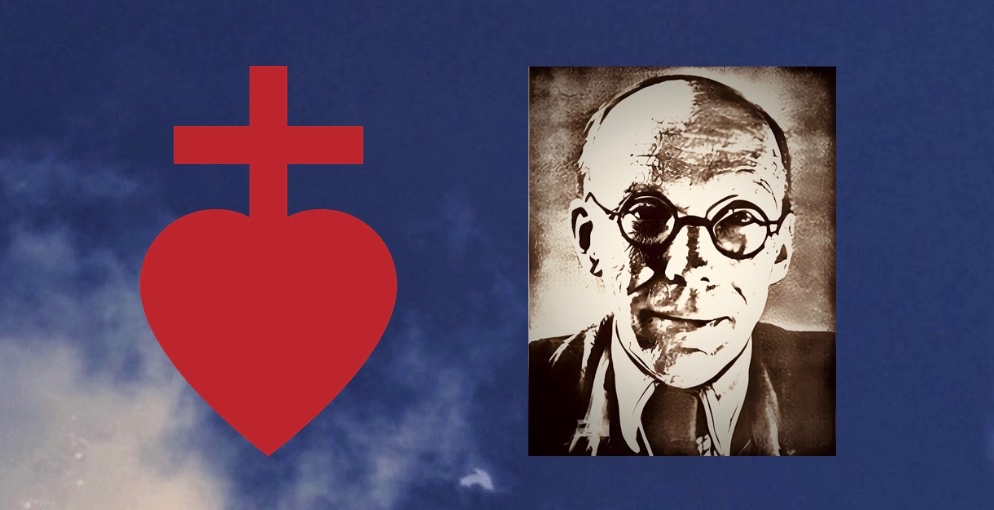
2023 Update:
Here is the first of a never-completed nine part series of musings on Valentin Tomberg, Catholicism, Rudolf Steiner and the world tragedy, written many years ago in 2011. In recently re-visiting it, for the first time in years, I have seen fit to rewrite it a little. But for the most part it remains as it was, even if today it seems to me very slightly crude and immature in places.
My more mature thinking on Tomberg is found in my books, key articles like this one and the YouTube videos you will see peppered through the series. Still I think there may be valuable material in this series not found elsewhere and For navigation purposes, we list and link the nine parts here:
- Valentin Tomberg, Catholicism and the Counter-Revolution—Pt. 1
- Valentin Tomberg, Catholicism and the Counter-Revolution—Pt. 2
- Valentin Tomberg, Catholicism and the Counter-Revolution—Pt. 3
- Valentin Tomberg, Catholicism and the Counter-Revolution—Pt. 4
- Valentin Tomberg, Catholicism and the Counter-Revolution—Pt. 5
- Valentin Tomberg, Catholicism and the Counter-Revolution—Pt. 6
- Valentin Tomberg, Catholicism and the Counter-Revolution—Pt. 7
- Valentin Tomberg, Catholicism and the Counter-Revolution—Pt. 8
- Valentin Tomberg, Catholicism and the Counter-Revolution—Pt. 9
And now back to 2011 — Roger Buck
We have said that this weblog series will be devoted to the corpus of Catholic works by Valentin Tomberg, following his startling conversion in the early 1940’s.
The works in mind here fall mainly into two distinct categories and it is well to distinguish these.
The first part of the corpus was written in the years immediately following his conversion and is addressed to Catholic students and practitioners of jurisprudence. There are three (extant) titles:
- Degeneration and Regeneration of Jurisprudence
- Foundations of International Law as Humanity’s Law
- Problems of International Law
Now, the first book is finally available in English with a new title: The Art of the Good and has been reviewed at length here. Alas, the latter two are not easy to find – at least in English-speaking world.
The second part of the corpus is addressed to a hermetic audience and was written in the 1960’s and early 70’s, principally his Magnum Opus Meditations on the Tarot and the later writings now collected in Lazarus Come Forth.
All that said, there was one short unfinished work that falls between these two stages. It has recently been republished under the title Personal Certainty and might be termed an epistemological work that anticipates the epistemology in Meditations on the Tarot. Although the book is not esoteric and was not intended for a Hermetic audience.
The words ‘hermetic audience” will be unfamiliar to some and will need defining and ‘unpacking” as this series proceeds.
Just for the moment, let us simply say that the author uses the word hermetic to invoke a current of thought over millennia, which is said to go back to the Egyptian Hermes Trismegistus.
Speaking very simply for the moment, we might remark that the most famous maxim associated with Hermetic thought is ‘As above, so below”.
This is to say there exist correspondences between the world of Heaven and the worlds below Heaven of both subtle and material composition and creation. And Hermeticism is all about seeking for such correspondences.
Historically, it has involved alchemy, astrology, the Tarot and indeed many things New Agers are interested in today.
Profound contemplation of such things is present in Tomberg’s hermetic works. Profound and not crude: the traditional Catholic reader can be assured that in the midst of a long volume devoted to the Tarot, there is not a single line about telling fortunes with these cards!

Still, the very term Hermeticism is sufficient to trouble many Christians. And there have certainly been many hermeticists over the centuries who ran counter to the Church.
However, Valentin Tomberg suggested that such counter-Christian hermeticism constitutes a world tragedy.
Instead, he calls repeatedly for a Hermeticism that is obedient to the hierarchical Church, with the Pope necessarily at the apex of the hierarchy.
Tomberg was in fact capable of writing highly critical words indeed of Hermeticism without the Church. His strong language may be often overlooked by contemporary hermeticists and New Agers – and it is worth calling it to mind.
No, more I say – it is worth not simply calling his words to mind, but really absorbing these words, breathing them in and letting them speak in one’s heart of hearts.
Feeling the world tragedy as I do this morning, I would implore many souls to really ponder these words from Tomberg, we quoted at the outset.
Hermeticism is a badly-coined alloy of false religiosity with a false scientific spirit. …
Is the above-mentioned criticism valid?—Yes it is. It is well-founded, because … the Church is based on the three sacred vows —obedience, poverty and chastity—whilst we Hermeticists behave as pontiffs, without the sacraments and the discipline that this entails . . .
Anonymous, (Valentin Tomberg) Meditations on the Tarot, p. 190
Now, thus far we only speak in broad strokes. This is but the opening of a long series and the relationship of Hermeticism and the Church needs to be explored in more depth than possible here at the outset.
Still, even if Tomberg could be critical of Hermeticism without the sacraments and the discipline of the Church, many a traditional Catholic will remain puzzled by the tremendous importance Tomberg did in fact give to Hermeticism – at least a Christian Hermeticism.
It may help such readers, if we note that Valentin Tomberg would draw an analogy with Platonism. For Platonism is a pre-Christian philosophy which aspired to understand the ideals which stood behind the visible world.
Christianity did not reject pre-Christian Greek Platonism.
Indeed, Valentin Tomberg would say that it baptised Platonism. And among other Fathers of the Church, St Augustine Christianised Platonism, just as St Thomas Aquinas would later baptise and christianise Aristotelianism.
Now, Valentin Tomberg believed that it was necessary – for the salvation of world civilisation perhaps – that Hermeticism become baptised as well.
Indeed, in this series, we will suggest that Valentin Tomberg was gravely concerned by the continuation of a non-baptised, non-Christian hermeticism that lies at the roots of much of today’s growing neo-pagan New Age movement …
The salvation of world civilisation …
The tragedy of a growing de-Christianised, de-personalised New Age esotericism and spirituality …
Dear Lector, on a very personal note, I should like to say that these last things are matters, which – this morning in particular – are piercing my heart.
Really piercing. The pain began last night and does not go away.
I am glad to say.
Yes, as I send this out into cyberspace, may I say that I am glad that I am feeling ever more pierced. It is through no merit of my own that I begin to feel this in my stony heart. It is the Sacraments working in me.
Personal notes aside, this series will be continue exploring these themes. We will also be considering what Valentin Tomberg meant by degeneration in both his legal and hermetic works.
When? Quite soon, I think …
Finally a book review has now gone up at this site which is both relevant to what Valentin Tomberg meant by degeneration and to the stream of counter-revolutionary Catholic thinking to which he turned to in response to this degeneration …
Foreword for Monarchy by Roger Buck
Buying Books at Amazon Through These Links Gives Us a Commission. This Supports Our Apostolate. Thank You if You Can Help Us Like This!

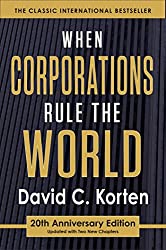

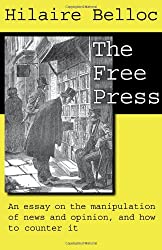
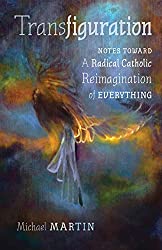




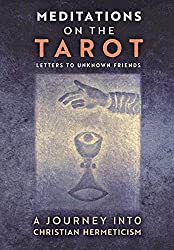
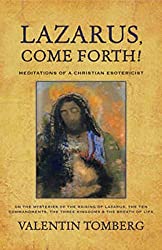
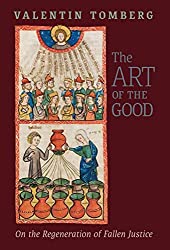
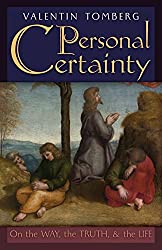
Comments
comments are currently closed
3 responses to “Valentin Tomberg, Catholicism and the Counter-Revolution—Pt. 3”
I am so glad that you are going to address these questions. Over the moon, in fact.
After reading the Meditations, the conclusion that I drew was that it had been Tomberg’s chief goal to harmonize Hermeticism and Christianity and that ultimately, his efforts were a failure.
After reading what you wrote, it may be better to say that he pointed to the need to baptize Hermeticism and that effort has either not yet happened or is not yet complete, either of which is more optimistic than my assessment.
Bringing Hermeticism into the Church will not just change Hermeticism, but also the Church. Uniting in love, they will have understand each other by intuition. This in turn changes both, for to truly understand is to (at least partly) become.
I really look forward to your discussion.
Billy – and Edwin from the previous entry – thank you both so much.
Once again, I know people are looking at these highly controversial entries, though whether in horror or not is difficult for me to judge. : – ) I really want to appreciate both of you for your engagement.
I also want to beg both of you for your patience.
I want to make a fuller response to you both. And I will before long. It might even go up in the blog itself with a title like “Response to Edwin and Billy”.
This is because your comments have evoked a LOT in me, that I know not how to address sufficiently right now.
But it is something to do with the beauty I feel in both your comments – and also the reality of what I am suggesting in my latest entry as the (well-advanced) extinction of Christian civilisation, that Valentin Tomberg did everything he knew how to do to combat …
Beauty – with you Edwin it is to do with the beauty of the ecumenical ideal (if frequently not the practice, which so often tries to reduce Christianity “to just another spiritual path – equal to others”).
But the beauty of the ideal of ecumenical engagement, yes. (However, Edwin although I take your point about Cabbala, I will be suggesting in this series that Valentin Tomberg was very concerned indeed about an Eastern depersonalised spirituality threatening Christianity in the West .)
Beauty – with you Billy it is the beauty evident in your thoughts about union in love … Christianity was enriched by the fact that St Thomas dared to love the pagan Aristotle.
But for now, this really is just a quick expression of my gratitude and a very partial response to something I really will try tackling more fully in the next days.
[…] Valentin Tomberg, Catholic Tradition and the Counter-Revolution …Feb 18, 2011 … Profound contemplation of such things is present in Tomberg’s hermetic works. Profound and not crude: the traditional Catholic reader can be … […]